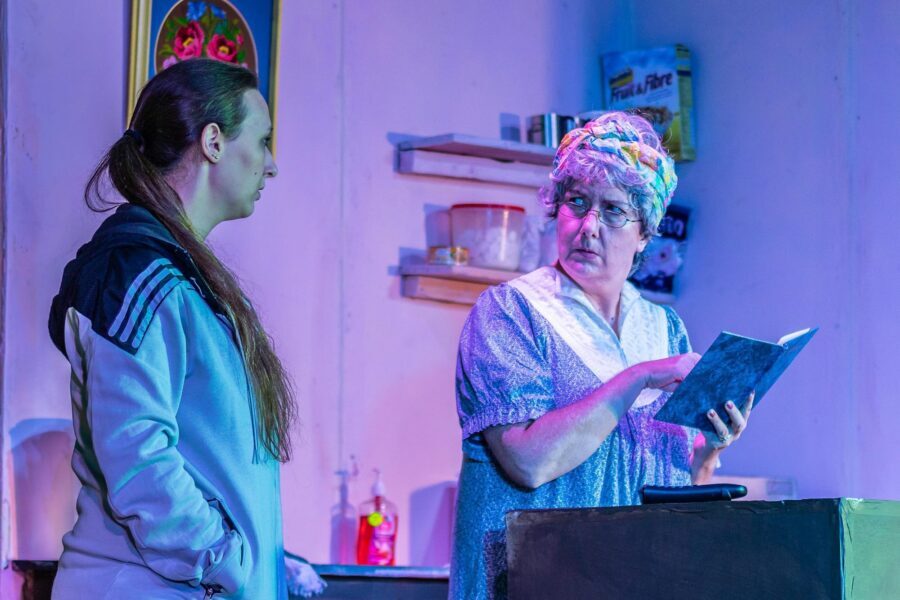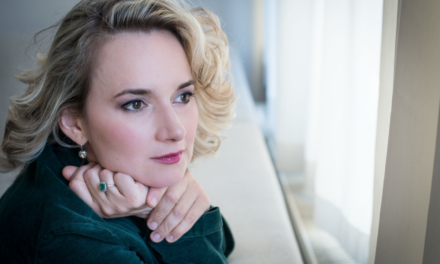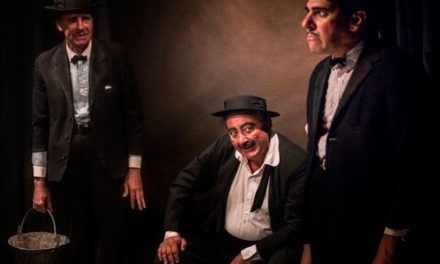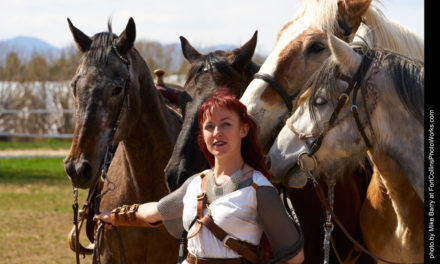Dr. Julisa Rowe is a name that many may not recognize, but should. With over 35 years of experience in Theatre and Performing Arts, the 55-year-old theatre maker shows no signs of slowing down. As we sit down for our online interview she informs me that she just finished a zoom rehearsal with a group of high school students. She is a wealth of knowledge that I have personally had the opportunity to tap into, both as a student and collaborator on various projects.
Born in Zimbabwe and later moving to Kenya as a child, Julisa Rowe had to find a way to minister and do what she loved.
“Growing up in a missionary family I always felt the call to serve in missions – I just didn’t know what that looked like. In school I was active in end-of-term and end-year plays, as well as Christmas and Church pageants… I was also heavily involved in music. My mother is a musician so I sang in the school choir and took part in the Music Festivals, but I knew that I didn’t want to study it because I felt it would ruin the experience for me.”
“In Form 3, my high school started a drama club. We did a one act play on Jonah. He comes to Nineveh as the featured speaker at the Nineveh Ladies’ Tea Club. I was the leading lady at the club and I had this one line – ‘I love my pigs, they are such sincere creatures.’ It’s the only line I remember from it. It was a lot of fun,” she says, laughing. “I got encouragement from my drama teacher and affirmation from the audience. That felt nice.”
The next term she flew to the US and did a year of study there. She took a theatre class and was an understudy in the school musical for the only female role.
“My teacher loved my Cockney accent and actually wanted to put me in the lead but was under pressure to have the other girl do the role instead. She ended up casting me in a minor role and all I could think was, ‘Darn! There goes my good Cockney accent.’”
“My teachers in the theatre class affirmed me, which was great. I didn’t get stage fright and actually had a lot of fun acting. I came back to Kenya in Form Four… I remember going to a friend’s house for a party and watching a Christian movie that left me deeply embarrassed. It was the kind of messaging that basically hits you over the head with the Bible; it was in that moment that I decided I wanted to change the narrative of Christian film.”
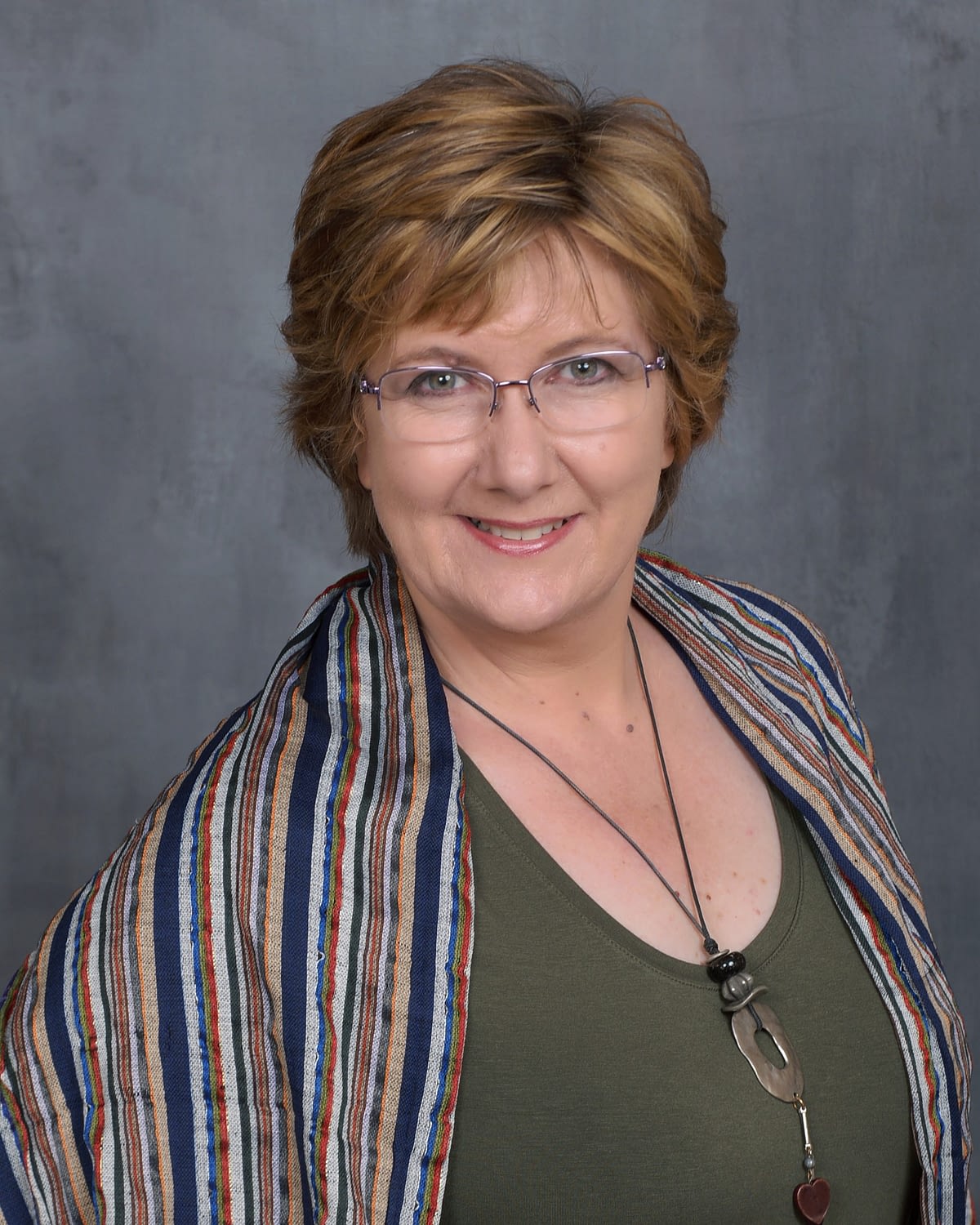
This being the late ‘70s, there weren’t as many universities offering media courses in film.
“I wanted to go to my family alma mater, Westmont College, but at the time they only offered theatre so I took that instead. This was lovely because it was even more immediate – film is a ‘dead’ medium; theatre is live and has interaction between the actors and audience.”
For her senior year performance, she did a portion of The Belle of Amherst, a one-woman show based on the life of Emily Dickinson, an American poet. It was this project that spurred her interest to do the same, featuring Christian women who were missionaries and hymn writers.
“I created one-woman dramas which I performed for a couple of years. Later on, a friend of mine called and asked if I would be interested in creating a show on the life of Amy Carmichael, a missionary from India. We ended up having a 2 hour one-woman show. People loved it and asked me to perform it at their churches and colleges, so I condensed it to a 75 minute touring show. I toured it for 14 years in the U.S, India ( at the home Amy founded) and Nairobi. while adding other pieces to my repertoire. At the same time, I was developing drama teams in churches and schools and using those for sermon illustrations, teaching and entertainment. I also helped coordinate a North West America wide conference where we taught skills and performed.”
At this point Julisa catches herself and laughs at what she thinks is a long and elaborate answer to my one question so far. I assuage her fears, thinking how rare it is to get such an in-depth look into someone’s life in this day and age.
I pose my next question, curious to know what brought her back to Kenya at the peak of her career.
“A lot of my dramatic work featured missionaries from the 18th and 19th centuries. I was also conducting training on cross-cultural communication and performed at a lot of mission conferences. I performed at the US Center for World Mission that had lots of mission organizations centered there. One of the organizations had a magazine known as Mission Frontiers that had global distribution. They wrote about me and my work and that was the first time publicly sharing my ideas on ‘ethnodramatology’.”
Dr. Rowe was the first person in the ‘80s to coin the term ethnodramatology, which she defines as the study of drama across cultures. She does not support the practice of taking Western forms of drama into a culture and fronting that as the only way to do it (drama).
“I saw this as an area of study based on my parents’ work in cross-cultural communication and media. My father did a lot of research and training on the topic in the early years of Daystar University; as to what constitutes communication, how we do that across cultures and getting through all the barriers from culture to culture. My mother is an ethnomusicologist, looking at indigenous music forms in people’s culture as well as how they integrated Western forms of music.”
With this proof of concept, she started to think critically about how to further expand her career in drama.
“When the article was published, I started getting letters from all over the world to come teach on the subject. This led to my doctoral studies in the subject and through that I posed the question, ‘What is ethnodramatology and how do we build a framework for it?’ To find data on this I picked 3 cultures to study – US, South Indian and Kenyan Drama forms. I picked South Indian because I had many Indian childhood friends, and had visited in India a little bit. I picked Kenya because of my upbringing here and contacts which made it easy to make Daystar my base of research.”
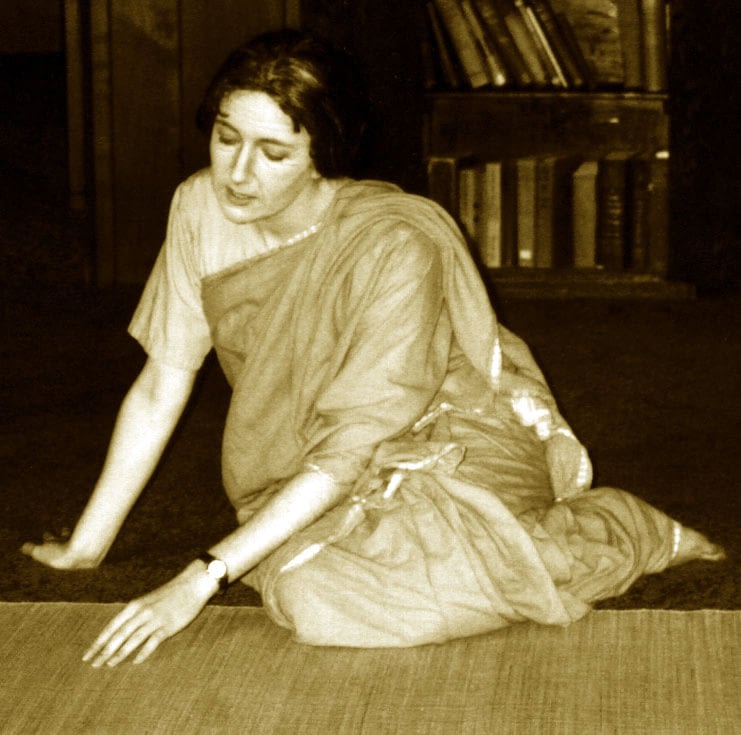
Together with her husband Bill, who is a music teacher and performer she came to Kenya in 2001 for her field research. They offered courses in worship, music and drama. In the course of that year, as they were getting ready to go back to the States, people started asking why they were leaving, when there was clearly a great need for training here. In a decision she attributes to God’s leading, they permanently relocated to Kenya in 2006.
“In my time here, I’ve been looking at contextualizing Western forms since the influence is really strong in the city, while also working to encourage Kenyan theatre. I finally got into media and film through my students at Daystar and have landed roles on TV shows as well.”
Her faith plays a huge role in her life, and influences the work and roles that she chooses to participate in.
“My focus is always how, as a believer, to effectively represent Christ without making non-Christians gag; in a way to intrigue and attract them while still encouraging Christians to tell their stories openly and honestly.”
At this point, I wonder what she considers the most fulfilling and frustrating parts of her career. Her face lights up as she talks about Directing.
“I love directing and seeing people blossom in their roles and as actors. I always get incredibly energized and enthusiastic directing people who want to be there, who want to learn and grow; whether it’s high schoolers doing it for the first time, or professionals – taking them to the next level and creating art with a bunch of experienced people and being able to put out shows that appeal to the audience. To hear people say, ‘Wow, that made me think.’ It’s very satisfying. That goes along with teaching and training. I like seeing people latch onto ideas and learn and grow and use my material on other people. I can go on directing ad infinitum, but sometimes I need a break from teaching.”
“The most frustrating thing has always been finding a place to keep doing all of it (creating, teaching, and training) and have people come alongside, and let it go beyond me. That, together with the idea that art is nice but not necessary to life, which I disagree with. I believe it is an essential human need that helps us see life in a new way and we let other things take precedent over that. Not having the money to do something, being left with the dream but not the money to bring it into fruition, that’s hard.”
Of course, she is not the type to fold her arms in surrender- she always and I mean always finds a way to work around problems. Have a tight budget? Strip down the show a bit. You find an actor that can’t act but shows up for every rehearsal? Dr. Rowe will cast them in a role that will help them shine without dragging down the rest of the group. A pandemic shutting down everything might have given cause for most of us to curl up and wait for the storm to blow over but not Julisa.
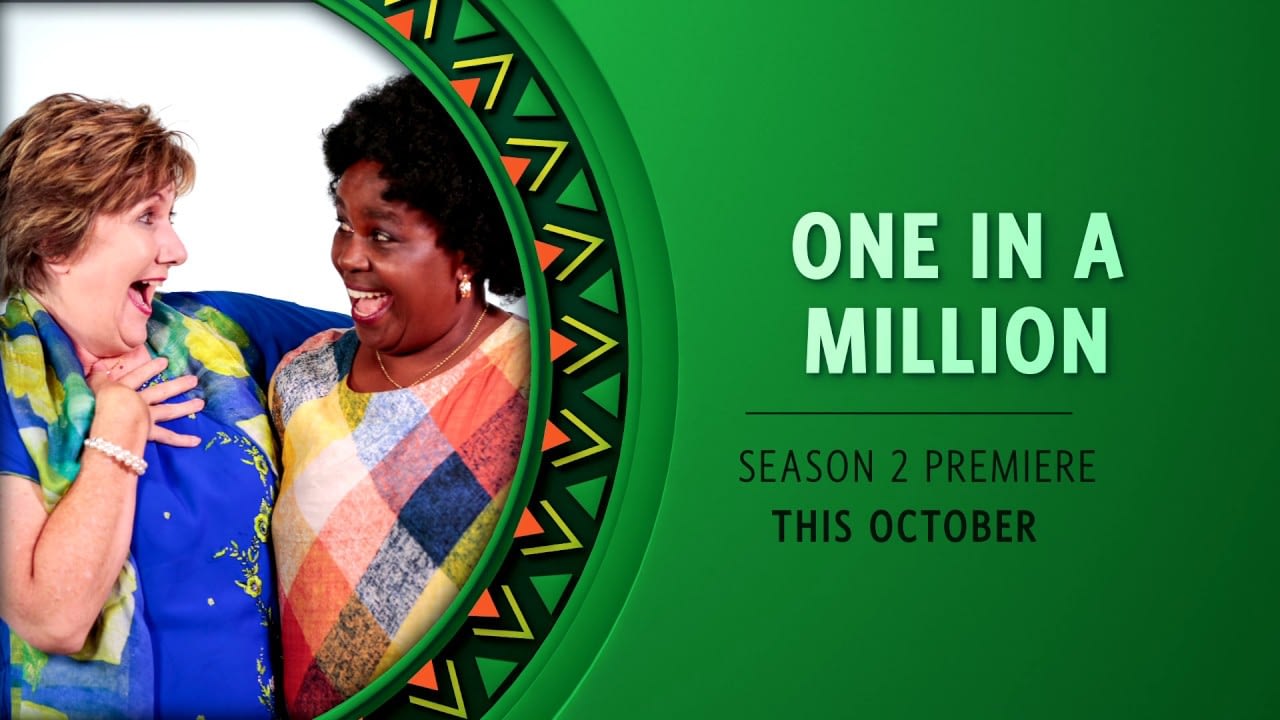
Julisa Rowe has had roles in TV shows like One In A Million on Maisha Magic
With unstable Wi-Fi, they couldn’t attempt a live Zoom play.
“I reached out to the school and the parents and asked them to allow us to do the play in person. The plan was to make sure all windows and doors were open, and if someone wasn’t on stage at any particular time have them wear a mask. With the blocking I figured I could have them 1.5 meters apart and always adjust when one of the actors moved.”
They did one in-person run-through and the difference in energy when they met physically was palpable.
“We thought to record each person individually, but later decided to have 4 cameras recording at the same time and went as close to real time as possible. We then edited it together and had a Zoom meet for the school and invited other people to watch. Afterwards we had a live Q&A with the actors. It was less than ideal but we got to do something, and that was exciting.”
“After that I thought to myself, if Broadway and the National Theatre were putting up plays online, then we could do the same.” She went back to a 2013 recording of Rohio and Juliet (a Mamlaka Hill Chapel adaptation of Romeo and Juliet), and released it online as part of the church’s effort in outreach.
“It’s challenging trying to remind people to attend meetings, blackouts, the lagging but we are embracing it… I think that’s what the theatre community did with lockdown, they embraced it. Online plays are not theatre and not film. They are this new in-between genre that allows us to keep doing something.”
In 2020, Julisa was also working on Nyanga: Runaway Grandmother, an opera piece. It is currently on hiatus as the team takes the time to raise funds for the production, as well as waiting for the restriction on public gatherings to lift. The opera is a theatre form popular amongst a niche audience worldwide. Nyanga was developed by Kenyan-born international opera singer, Rhoda Ondeng’ Wilhelmsen and composed by F.W Chandler, based in the U.K. Julisa was tasked with making this production feel as authentically Kenyan as possible.
“My first approach in achieving this vision was with the look and feel of the production-from the set, costume and props, making it feel as familiar and real to the Kenyan landscape as possible. The music director also wanted to make the music Kenyan by incorporating instruments such as the Nyatiti.”
“Blocking a socially distanced opera was not what I envisioned for the stage production but it’s what needed to happen to keep everyone safe. As part of the fundraising strategy for the show we put up a few performances from select parts of the piece. It was evident that the audiences, even those with no prior interaction with the art form, connected with the story.”
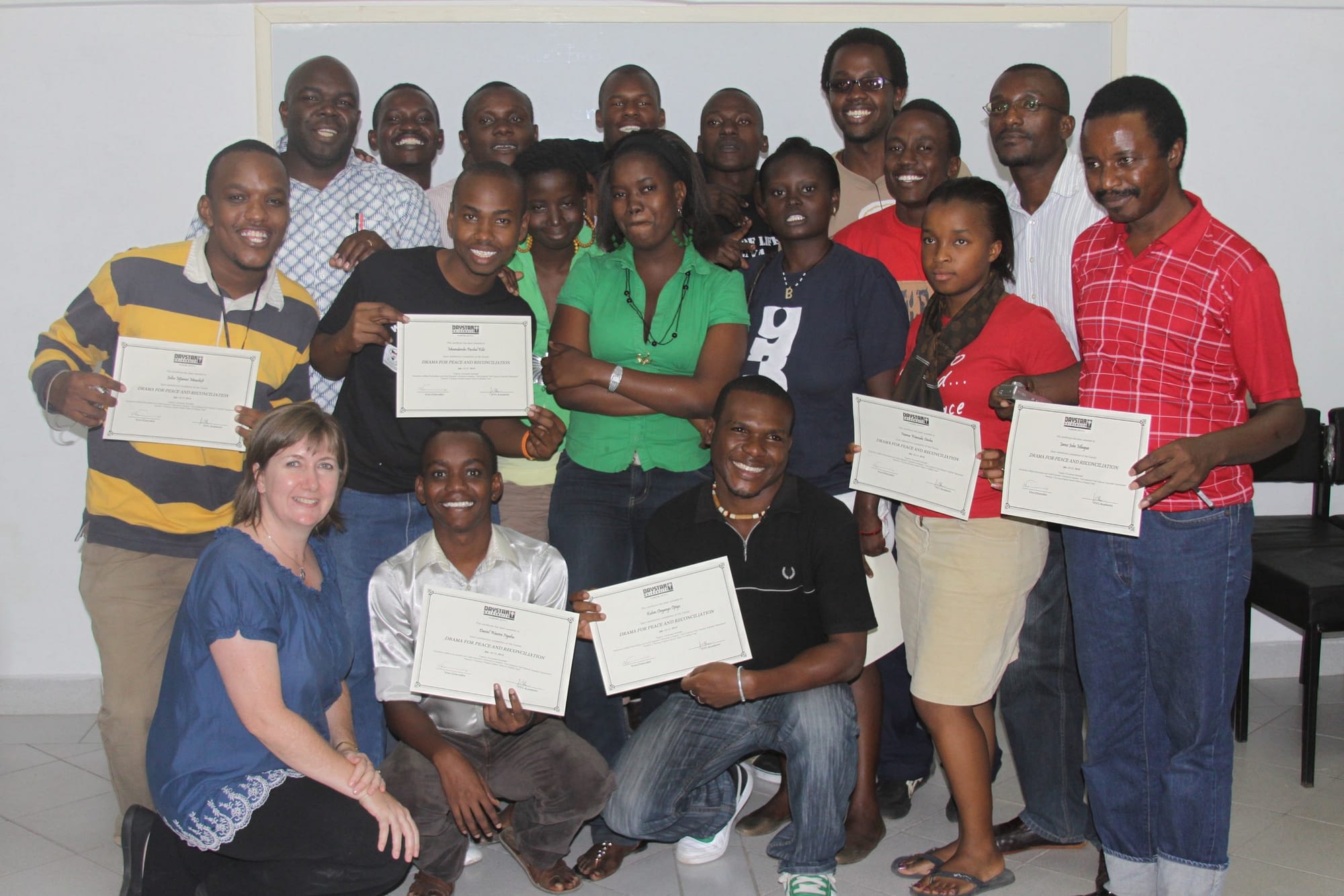
I’m surprised to learn that this was her first time directing an opera and she offers, “Even though it was my first time it’s not that much different from doing a musical. As a director I don’t have to be an expert in everything but I do need to know what I want and get professionals to help me achieve it.”
As this project stopped another was waiting round the corner. Julisa was approached by Nimo Mathenge the founder of Zan Artts to come on board as Head of Drama. Zan Artts is an African Arts High School in Nairobi, Kenya enhancing Arts education in Visual, Theatre, Media, Dance and Music. Nimo who came back to Kenya after decades in the United States aims to offer training skills-wise but also theoretically.
“As an educator in the Arts, I would say that IGCSE( International General Certificate of Secondary Education) &IB ( International Bacclaureate) seem to have the most consistent drama curriculums in Kenya that start with the students from a young age. In the 2-6-6-3 Kenyan curriculum (formerly 8-4-4) the most common genre is more morality plays for the National Drama Festivals. There is nothing wrong with that, just that today’s Kenyan youth are more exposed to TV and film; even Western theatre that is geared more towards realistic acting. They are not able to get that training in our school system and end up going abroad to access the knowledge and they don’t return. There is a lack of consistency in the courses offered and sometimes the trainers are also not qualified – couple that with people not being able to afford the courses and not wanting to pay for training… It’s a complicated issue. We hope that with our programmes at Zan we can give foundational knowledge as early as possible.”
Some like myself might have been reluctant to make plans for 2021 but she is still pushing on. Dr. Rowe is pursuing a partnership with Daystar University to offer a diploma program that caters to the needs of post-high school students and adults who want to go further in their career. She has also been approached by Missional University to develop material and teach on Ethnodramatology.
“I would like to put up a theatre company as well as have a media production house that will not only produce wholesome, entertaining content, but also make economic sense for all the players involved, especially those who are Christians.”
This whole interview I realize is the product of conversations that we have had over the now 9 years of acquaintance. The greatest lesson I think she has taught just by living her life is consistency, doing what she said she will do, and remaining true to her faith always. Dr. Rowe represents a rare breed of role model and mentor wrapped in one and hopefully the world continues to experience her brilliance for a long time to come.
Photos provided by Dr. Julisa Rowe
Sakina Mirichii is a lover of the arts and is engaged in film and theatre sometimes as a writer, actor and producer. She runs a company Sanifu Productions together with her husband, Justin and has trained as a Children’s Drama Teacher. When she isn’t binge watching movies and series, she enjoys experimenting with new recipes to feed her ever- present appetite.
This article was originally posted in The African Theatre Magazine on March 26, 2021 and has been reposted with permission. To read the original article, click here.
This post was written by the author in their personal capacity.The opinions expressed in this article are the author’s own and do not reflect the view of The Theatre Times, their staff or collaborators.
This post was written by Sakina Mirichii.
The views expressed here belong to the author and do not necessarily reflect our views and opinions.

